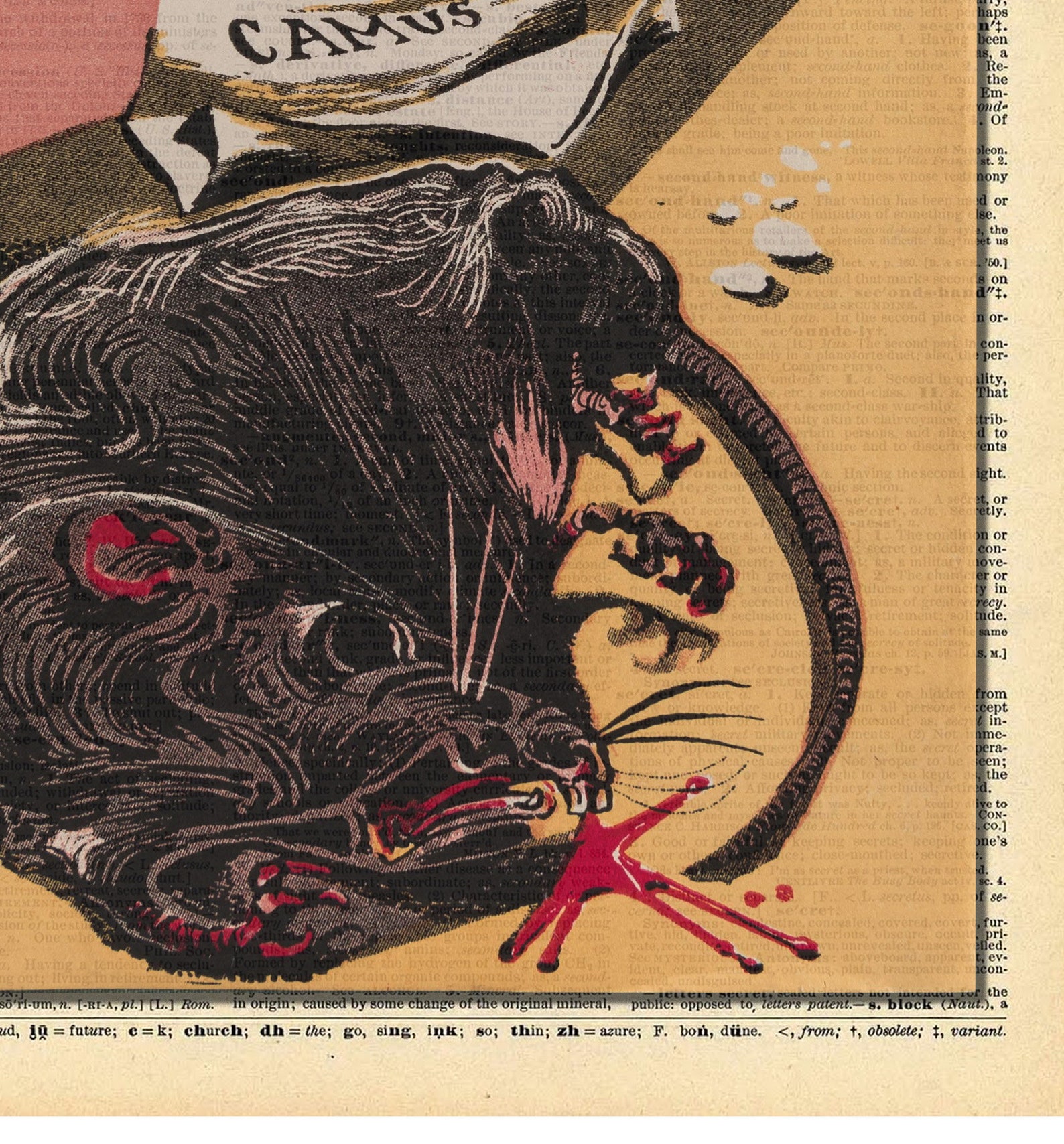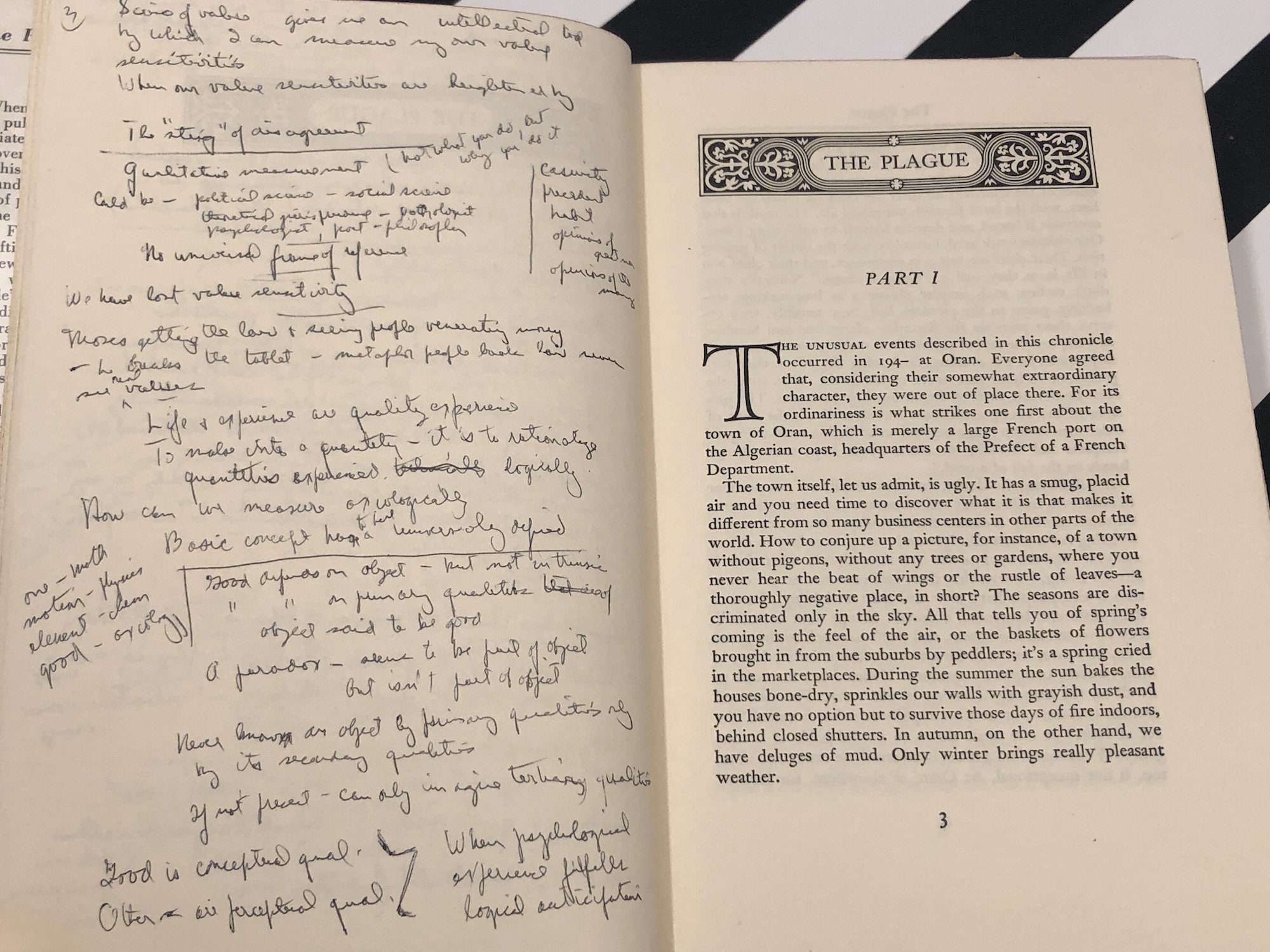


Camus' idea of living meaningfully, yet knowing full well that life has no eventual meaning, is a positive-negative contrast. Camus conceived of the universe in terms of paradoxes and contrasts: man lives, yet he is condemned to die most men live within the context of an afterlife, yet there has never been proof that an afterlife exists. In his volume of essays, The Myth of Sisyphus, published five years before The Plague, he says that contrasts between the natural and the extraordinary, the individual and the universal, the tragic and the everyday are essential ingredients for the absurd work. Camus, however, had good reason for beginning his work with just such a contrast. In the first paragraph of the book, the ordinariness of Oran is contrasted with the extraordinary business of the plague, and on the surface the comment seems possibly only a bit of literary formula. The announcement of death is paramount in Camus' philosophy and in his novels. He is announcing the deaths of many people, common people, and as spectators, we will wait, watch, hear, and perhaps learn from the consequences of the everyday Oedipuses and Creons of Oran - citizens warned again and again of their fate to die, yet who choose to be unbelieving, antagonistic, and indifferent to the warning. This is, in a sense, what Camus is doing in the opening scenes of The Plague. A man only begins living, according to Camus, when he announces in advance his own death to himself and realizes the consequences.

While reading this novel, one should remember that Camus has an initial prerequisite for an understanding of his philosophy of the absurd: a realization and recognition of the fact of one's own death. Here also we know in advance the horrible fate in store for the characters, and we watch as the scenes unfold the familiar fate and the agony of, say, Oedipus or Creon. This technique, it is worth noting, is somewhat similar to that of a Greek tragedy. It is also underscored in the first chapter. The tragedy of a plague is announced in the book's title.


 0 kommentar(er)
0 kommentar(er)
